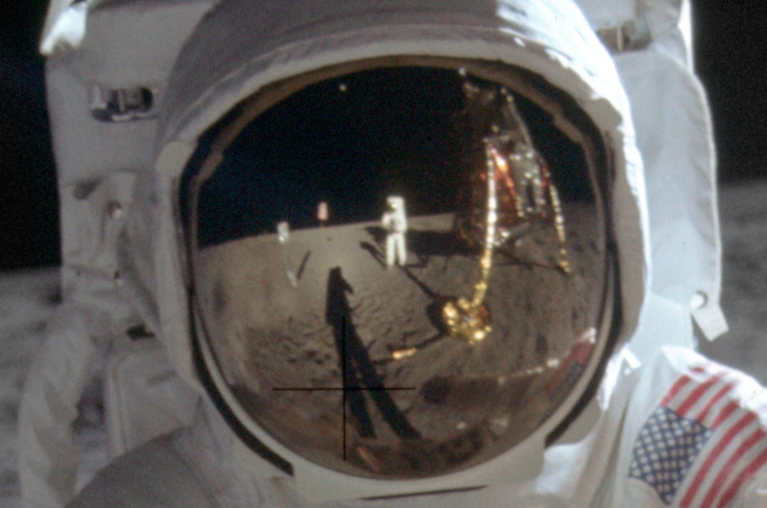Copyright Resilience

I grew up as a space enthusiast before I grew up. Part of the maturation process involved work on a Space Shuttle project, two decades of uninterrupted funding from NASA, reviewing many dozens of NASA proposals for space/rocket investigations, and serving as Principal Investigator for a mission concept study centered at the Jet Propulsion Laboratory to put a laser transponder on Phobos. Oh, and the most significant chunk of my astrophysics career relied upon the reflectors placed on the lunar regolith by astronaut hands. No single moment stands out as a crossing of the Rubicon in terms of my migration away from fantasy. But by October 2011 my faith had eroded sufficiently to put out a blog post titled Why Not Space—motivated by responses to the “growth can’t last on a finite planet” drive that initiated this blog. “We’ll just expand into space,” some countered. Note: always beware the word “just,” especially when attached to feats of unprecedented difficulty. I reprised the theme in Chapter 4 of my textbook (out in 2021), and again a few weeks back. In the last five years, my journey has produced significantly new perspectives (for me) which only serve to make the space delusion more strikingly fascinating and revealing. At this point, it’s hard to identify a phenomenon that so completely captures the religion of the day and its unhinged basis. Never Lived There We’ll start with a statement that might make the enthusiasts sputter: humans have never lived in space. But what about Skylab, Mir, and the International Space Station (ISS)? Once you’ve showered in space, aren’t you living in space? Well, there’s a lot more to life than showering. The space situation as we’ve experienced it is a lot like camping or backpacking, only far more extreme. At least when people go camping they breathe the ambient air and might drink wild water—certainly so if backpacking. Some might even supplement food by fishing or hunting. At times, I’ve boosted my diet substantially by foraging berries. But I don’t for a second delude myself into thinking that I am living in the wilderness. I’m just visiting. What’s that on my back? I might have a valid claim if I went in naked and came out months later in good health (which isn’t how humans really live in the wild—as rugged individuals). Every atom/molecule critical to a space visitor’s life are of earthly origin. Oxygen, water, food, shelter, fuel, tools—are all carried from Earth. As pointed out in the earlier post, the ISS essentially is connected to the ground by Rube-Goldberg “hoses” (via expensive rocket launches) carrying air, water, food, fuel, and equipment. It’s not really living in space, but the most elaborate and expensive backpacking/scuba trip ever. The Amundsen-Scott research station at the south pole is somewhat similar to the ISS in several respects. It is continuously occupied, and a few dozen winter-over each year. Like backpacking, air and water are locally abundant—not so on the ISS, Moon, or Mars. But food, energy, and all supplies come from afar. No one lives there permanently—or even for three years—and no child has been born there. It is quite telling that despite being almost infinitely more benign than space environments (including radiation) and being orders-of-magnitude cheaper than space visitation, people still don’t live their lives there. Talking Nonsense Our culture tends to reward visionaries and dreamers. This bias affords great cover to people who rhapsodize about space, holding them to a pretty low standard of realism. Cliches, platitudes, and paper-thin arguments pass for wisdom. In some sense, the more outlandish their position, the more revered they are as visionaries! I say settling in space is extraordinarily unrealistic and thus unlikely. They say: balderdash—human innovation is unlimited…and since no one 200 years ago saw the internet coming, anything we dare to imagine now is ipso facto going to happen. By some crazy twist, pessimism is thus always wrong! Can I prove living in space is not practically possible? Can they prove it is? Where, exactly, does the burden of proof lie? It would seem to me that something never before demonstrated despite tremendous—yet so far wholly inadequate—efforts in that direction must assume the burden of proof. The default position should be that it’s crazy-talk, until proven otherwise. Yet, the case against space is a hard-sell in a culture whose faith in technology and ingenuity approaches religious fervor. People bridle at statements starting out with “We can’t,” or appeals to limits in general—I suspect because such realism threatens illusions of human supremacy. “Don’t you dare challenge our godly omnipotence!” It’s rather fascinating, based as it is on extrapolation of a narrow stretch of time in what is probably the most anomalous (and manifestly temporary) period in Earth’s history. Just know that people who talk up space colonization are painting alluring pictures of castles resting on clouds. Who wouldn’t want to live there? But painting is the easy/empty part, requiring very little actual accomplishment. There’s no foundation to it: no evidence; no demonstration; no funding at relevant scales; insufficient political will; misguided motivations; and a raft of technical deal-breakers relating to radiation, physiology, extraction, reliability, and self-supporting micro-ecological sustainability. It’s not even close to serious. Why do we even entertain the ravings? But such lunatics (and Marsatics?) get a cultural pass, while the more appropriate reaction would be good-humored teasing for those who are not too far gone, and ridicule/ostracism for those who aren’t taking the hints. The Fatal Flaw What do I believe to be at the core of the belief (faith) in a space destiny? I’m going to lay out a multi-layer account. Mental Models First, humans have brains. Brains are adapted to represent some version of reality faithfully enough to confer adaptive advantage. Mental model representations need not (and cannot) be perfect or complete, as long as they have some purchase on real phenomenology—even if indirect. For example, one can believe that forest spirits will protect and guide you if shown respect and reverence, but bring you to harm if shunned. Such a model may be wrong in a scientific sense, but nonetheless result in attentive behaviors that indeed reduce the chances of committing regrettable mistakes. All that our mental models have to do is offer value/advantage of some sort, on average, in some limited context. But thinking is a poor facsimile of reality. To think is to necessarily leave most of the universe out of the process, and therefore either ignore or misrepresent it. Writing expands the working canvas beyond raw cognitive capacity, but not sufficiently. Maybe the line ought to be: I think, therefore I fib. Or more accurately: Brains think, therefore they lie (dispatching the mentally-modeled illusion of “self” enshrined in first-person language). Separateness Mental models necessarily simplify messy reality into clean and tidy representations that can be “grasped” and manipulated. Our brains assert categories, divisions, and artificial “boxes” that are more crisp in our heads than in the underlying reality. In doing so, many contextual relationships are ignored and severed in the mental space. The door is left wide open to erroneous conclusions and bad decisions. The raft of simplifications imbue a tendency for us to differentiate animate vs. inanimate; subject vs. object; mind vs. body; particle vs. wave; distinct species with hard lines between them—while the reality is a mushy continuum expressing great overlap and constant interdependence. Among the most damaging mental models commonly held in our culture is that the human species is separate from the rest of the universe—certainly from Earth and its ecology. Moreover, individuals feel separate from the sun, rocks, rivers, plants, fungi, insects, mammals, other humans, and even their own bodies! Those sensations of separateness all stem from limitations (faults) in mental models: doing what brains do, even if wrong. In truth, our experiences do not manifest without all the elements listed above (and many more) behaving as an integrated and interactive whole. Nothing an individual does could be accomplished without all those elements being in place and locked in relationship. Granted, a human being can temporarily detach from some of these linkages and still live. But none of our food is synthetic: living matter, and thus the sun, is always the source—even for Twinkies! The air we breathe is processed by living organisms. The rocks hold that air—via gravity—for us to breathe. We cannot and do not exist separate from all the rest, even if our lazy mental models are readily able to pretend otherwise out of sheer, colossal ignorance. Castles on the clouds are all-too-easy to conceive—especially for kids—which is a warning sign. Supremacy Once our brains have asserted logical separation—however artificial and ultimately wrong—the next obvious task is one of ranking. It is little surprise that our culture places humans at the top of the scale on Earth. Some allow angels and God (or gods) a rung above, but in these cases we importantly straddle the (artificially-construed) divide, possessing both earthly and godly qualities: yes, we must begrudgingly admit that we still need to eat, poop, and die in a most un-godlike manner, but we also have thoughts, which are imagined (wrongly) to be divine-adjacent and divorced from matter. Basically, separation begets human supremacy, and it’s all in our heads. I and many others have dedicated plenty of writing to the agricultural origins of this sense of separation and supremacy, so I’ll not repeat those sentiments here. Suffice it to say that cultures who do not express separateness and supremacy tend to be immediate-return hunter-gatherers, whose animistic humility deeply embeds them within a Community of Life as participating partners rather than as masters/overlords. A profound sense of kinship remains intact when refraining from smashing the world into separate shards. Without the shards, ranking exercises cease to make any sense. Belonging As Daniel Quinn put it so well, the fallacy of modernity is believing that Earth belongs to us (and that we are meant to rule it)—whereas other (Leaver) cultures have humans belonging to Earth. Separation and hierarchy are ubiquitous and obvious in the modern view. Let’s examine the piece of our cultural mythology that says humans belong in space: that it is our destiny to claim the universe. It seems obvious that a hunter-gatherer viewpoint would not contend that humans belong in space. It’s not our context: space lacks stories tying us to the “land” for generations upon generations; space lacks a Web of Life to support us or for us to reciprocate within. These are pillars of Leaver cultures. The human-supremacist angle is brought into acute relief by asking whether any species besides humans belong in space (i.e., independent of humans). Do caterpillars belong? Newts? Eels? Chickadees? Zebras? If any of these strike you as ridiculous, then good! Now ask: why is it any less ridiculous to say humans belong in space? And here’s the hard part: try making the case without resorting to human supremacy. I’d contend that it can’t be done. Space ambitions, therefore, are a nearly perfect expression of human-supremacist views. Go, Human Reich! I even have an idea for a logo. Humans belong to Earth. That’s our context. At best, futile efforts toward space habitation would attempt to carry some representative collection of Earth’s ecology to support us, since scratching food out of the dirt on Moon or Mars ain’t gonna work. We have zero other options. What we would almost certainly find if foolish enough to try is that cleaving some subset of beings from their earthly context would result in decline and death. We’re not as smart as billions of years of co-evolution in a fully-interactive ecological context, and our mental models won’t capture a complete enough set of interrelationships to result in a viable whole (see Biosphere 2 post). Powerful Religion It seems that a key reason I’m attracted to the space question is that it’s a place of convergence where many failure modes stand out in stark contrast. Space fantasy exposes our capacity for delusion in seizing highly decontextualized mental models. The faithful are passionate in their baseless fervor. Living in space is the ultimate expression of humans being separate from our Earthly context—almost as if an important and perpetually-elusive proof of that false tenet. The belief that humans belong in space simultaneously appeals to the sense of separation and shouts human supremacy. But it’s working backwards—like building a pyramid starting from the top (on the ocean). Rather than evaluate whether a foundation and viable path exists, it is assumed that because humans are superior, we must end up in space, so the rest becomes pesky detail that will unquestionably be worked out. Practical naysayers who poke holes clearly don’t have the mental fortitude to start with a levitating top brick. The allure of space is wrapped up in ignorance over evolution (moving from sea to land to air, and next space), sloppy extrapolation of technological trends that in reality are heavily contextualized to a one-time fossil fuel bonanza, and a grossly misplaced analog to earthly exploration and colonization of benign and proximate continental frontiers. Also contributing is a sense of destiny, of supremacy, of ascendancy, and of total mastery. That’s a lot of contributing factors. But it’s a great window onto our culture, where the same flaws apply to our relationship with the Community of Life on Earth. Seeing ourselves as separate and superior has had devastating impact, on track to carry out a sixth mass extinction (a clever way to assure the evaporation of space fantasies). Many proponents of space colonization would recoil at the suggestion that their quest shares much in common with religious faith. But faith never feels like faith to a true believer: it requires no effort and tends not to be carefully examined. One has to at least temporarily step outside the faith to evaluate it, and defense mechanisms often prevent such heretical excursions. Within a cult, beliefs make complete sense and go unquestioned, while to the outside they seem insane. The problem in this case is that few of the voices to which we are exposed sit outside the cult of modernity. Once shot of faith in a space future for humans, the beliefs seem just as delusional and misguided as cult beliefs. I lament that it’s so hard to see past the smokescreen for most in our culture, who are already sold on the separate/supreme tenets of the religion and reticent to question these pillars of modern life. One might even feel sorry for them. Paucity of Heretics A measure of how ubiquitous faith in a space future is comes from looking for vocal critics. It’s comparatively easy to find rhapsodical appeals from prominent people. Crawling through these quotes is a tour de force in mythological delusion. Almost all assume without any reflection that modernity is permanent and ever-expanding (based, presumably, on lazy extrapolation of a contextually short phenomenon). A few outliers spot the peril and recoil at the palpable prospect of modernity’s failure on Earth, but grab for the space solution in what strikes me as a fit of panicked desperation to keep (abusive) modernity alive at all costs and against reason. While criticism is much less pervasive, most is characterized as cautioning against how we’re going about space ambitions (ethics, political priorities, anti-colonial sentiments, inequality, contamination risk), but not doubting that we ultimately will move to the stars. Try finding people who paint it as silly and not feasible on technological, ecological, or other practical/contextual grounds: willing to say it ain’t gonna happen. In my search for recognized experts bashing space fantasy, I came across a podcast chat between Michael Shermer (famously skeptical) and Neil deGrasse Tyson. I figured at least one of them would be dismissive of space fantasy, but both assume it will happen. At one point, Tyson even speculated that once liberated to space, wars may be a thing of the past because space offers unlimited resources. OMG the scale of delusion is staggering! It’s all going to be an easy utopia, apparently. Doesn’t that say it all? Maybe because the hardships are unimaginably tough, we simply don’t bother taxing our brains with those aspects. When I say “Try finding people” above, I’m serious: I want your help! I only found a tiny handful. Please use the comment section to point out instances from “credible” people strongly critical of the very idea of a space future. I’ll bet for every prominent voice who might come out hard against the viability of a space future, nine more will echo the cultural religion/delusion that space is our destiny. In such a lopsided environment, what are the masses to believe, and at what cost to Life on Earth? Teaser image credit: A reflected window on space camp (Wikimedia Commons).



